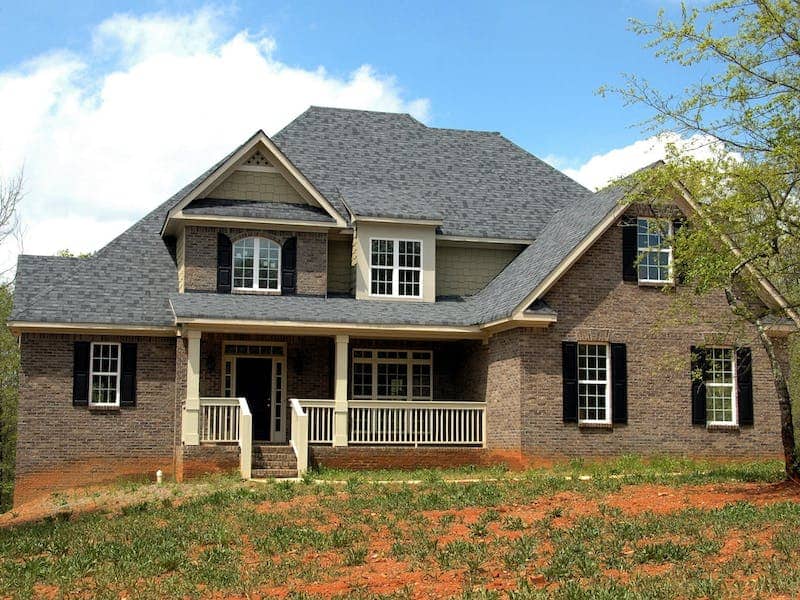If you’ve learned how to become an appraiser and you’re currently either a real estate appraiser trainee or Licensed Residential Appraiser and you’re ready to upgrade your appraisal license, becoming a Certified Residential Appraiser may be the right step for you. If you’re not sure what this role entails or if it’s the best option, we’re breaking down how to become a Certified Residential Appraiser, plus income information and more.
Is now a good time to upgrade your appraisal license? Download our free guide to find out.
What is a Certified Residential Appraiser?
A Certified Residential Appraiser can appraise any type of residential property containing four or fewer units.
There is no limit on complexity or transaction value, subject to the Competency Provisions of USPAP, so this certification opens the door to appraising more complex residential properties, including luxury homes. With respect to other property types and complexities, there are different appraiser levels that hold different responsibilities.
How does this differ from other licensing levels?
- If you’re currently a trainee, you work under the supervision of a licensed or certified appraiser, learning the ropes and gaining practical experience. This stage is crucial for building a solid foundation of appraisal knowledge and skills and completing the required hours to obtain your license.
- Licensed residential appraisers appraise residential properties with up to four units, including single-family homes, duplexes, and triplexes. This includes non-complex 1-4 residential units with a transaction value below $1 million and complex 1-4 residential units with a transaction value below $250,000.
- Certified General Appraisers can appraise all types of real estate, including commercial properties, vacant land, and farms.
A Certified Residential Appraiser can appraise any type of residential property containing four or fewer units. Basically, this includes:
- Single family homes
- Single family homes with auxiliary dwelling units (ADUs)
- Duplexes
- Triplexes
How to Become a Certified Residential Appraiser
The Appraisal Qualifications Board (AQB) of the Appraisal Foundation has minimum recommended guidelines in place to become a Certified Residential Appraiser. While most states use these requirements, it’s important to check with your state’s board to know exactly what you need to upgrade your license.
For example, some states do not offer a Licensed Residential Appraiser option and instead, appraisers will go from trainee to Certified Residential.
Qualifying education
You will need 200 total hours of Qualifying Education. Before becoming a Certified Residential Appraiser, you will need the following courses:
- Basic Appraisal Principles
- Basic Appraisal Procedures
- 2024 15-hour National USPAP Course
- Residential Market Analysis and Highest & Best Use
- Residential Appraiser Site Valuation and Cost Approach
- Residential Sales Comparison and Income Approaches
- Residential Report Writing and Case Studies
- Statistics, Modeling and Finance
- Advanced Residential Applications and Case Studies
This list does include the 75 hours of appraisal classes you took to get your trainee license, so if you already have that, you’ll only need 125 hours of QE to meet the AQB’s minimum requirements (but again, check with your state to be sure).
Hands-on experience
You need to have 1,500 hours of appraisal experience in no fewer than 12 months. If you have completed the 1,000 hours needed as a trainee, you will only need an additional 500 hours of experience to meet this requirement.
College education for Certified Residential Appraisers
To become a Certified Residential Appraiser, you will need some post-secondary education. Fortunately, there are several options available:
- Bachelor’s degree from an accredited college or university with any major
- Associate’s degree from an accredited college or university in a field of study related to business administration, accounting, finance, real estate, or economics.
- Successfully completing 30 college semester credit hours in specific topics, including:
- English composition
- Microeconomics and macroeconomics
- Finance
- Algebra, geometry, or higher mathematics
- Statistics
- Computer science
- Business or real estate law
- Two electives in the topics listed above or in accounting, geography, agricultural economics, business management, or real estate
- Successfully completing 30 semester hours in College Level Examination Program (CLEP) examinations in each subject:
- College algebra
- College composition
- College composition modular
- College mathematics
- Principles of macroeconomics
- Principles of microeconomics
- Introductory business law
- Information systems
- Any combination of #3 and #4 to ensure coverage of all topics
You may not need college
Some states do not require college education if you have held a Licensed Residential credential for at least five years. This is only if you don’t have any record of adverse, final, and non-appealable disciplinary action that would affect your legal eligibility to engage in appraisal practice within the five years immediately preceding the date of application for a Certified Residential credential.
Again, these are the AQB’s minimum recommended requirements. We highly recommend you check with your state’s board for more details.
Passing the National Uniform Licensing and Certification Exam
The final step to earning your Certified Residential credential is to pass the Certified Residential Appraiser Exam within the National Uniform Licensing and Certification Exam. This is a four-hour exam consisting of 125 multiple-choice questions.
The content you’ll be tested on includes:
- Real estate market – 18%
- Property description – 12%
- Land or site valuation – 3%
- Sales comparison approach – 18%
- Cost approach – 14%
- Income approach – 8%
- Reconciliation of value indications – 2%
- USPAP – 18%
When you meet the QE, experience, education, and exam requirements, you can apply with your state board to become a Certified Residential Appraiser!
How much do Certified Residential Appraisers make?
According to the 2023 Appraisal Income Salary Guide, the average annual income for Certified Residential Appraisers is $101,598. To put this in perspective, trainees’ average income is around $53,000 while Licensed Residential Appraisers earn an average of $89,056.
The major factors that influence an appraiser’s income include:
- Location – Appraisers in higher cost-of-living areas or areas with a stronger housing market may earn more.
- Experience – Appraisers who have been in business longer are more likely to earn more as they tend to have a larger network, are more efficient so they can complete more tasks in less time and may have other income streams.
- Specialization – If you specialize in luxury homes, green homes, or more complicated residences, you can often charge higher rates, increasing your income. You can also provide divorce and estate appraisals to diversify your income.
Why upgrade your license to Certified Residential?
There are several reasons to upgrade your appraisal license. In addition to making more money compared to Licensed Residential Appraisers, Certified Residential Appraisers are permitted to appraise a wider range of properties. Many appraisers enjoy the challenge of appraising complex and high-value properties because they find those assignments to be more interesting, more profitable, and more rewarding.
Survey: What’s your favorite type of property to appraise?
As part of our monthly survey series (sign up for our newsletter to participate), we asked our community of real estate appraisers, “What’s your favorite type of property to appraise?” Most respondents said they prefer to evaluate residential properties, including single-family homes, ranch-style homes, and condos. Many appraisers specified that they enjoy properties that are more challenging, complex, unique, or high-end.
Here’s what appraisers named as their favorite types of properties to appraise:
- Residential properties
- Single-family homes
- More complex single-family homes
- High-end SFRs (single-family residences) on acreage lots
- Multifamily homes (2–4 units)
- New construction
- Single-family proposed new construction
- Properties outside the city limits
- Farms
- Agricultural buildings
- Foreclosures
- Ranch properties
- Rural ranches
- 1950s ranch without a basement
- 3/2 ranch on a slab
- Waterfront properties
- Beach/resort condos
- Condos
- Manufactured homes
- Partial Acquisition Eminent Domain appraisals
- Hard-to-do appraisals
Here are some additional comments we received from appraisers:
“A more complex single-family property requires better use of appraiser skills and pays a higher fee due to the complexity.”
“I like higher quality SFRs on 1 to 10 acre lots with lots of moving parts – i.e., views, outbuildings, shops, ADUs, water frontage, etc.”
“I like the challenge of appraising properties that are outside of the city limits because they tend to be less ‘typical’ than those in subdivisions. The challenge they present in the market area that I serve is that they are not required to follow the city zoning, which means I sometimes find interesting properties that require more researching and analysis to develop the opinion value.”
“I grew up in a rural area and enjoy both inspecting the property, doing the research, and talking with the property owners about the property. I also enjoy the lack of traffic typically involved in getting to and from the property.”
“I just enjoy doing a full single-family appraisal. It gives me satisfaction knowing that I’ve done the best possible job.”
“As a former General Contractor, I am at home with new construction.”
“[Foreclosures] typically require a cost to cure, which keeps me abreast of current costs. If you’re not charging a lot for these, you are missing out. It also teaches you how to invest and spend on the right things.”
“I enjoy the appraisal process of a multi-family property (2-4 units) due to the amount of data and numbers that go into gathering information, analyzing the data, and making sense of it all. Additionally, I enjoy the reconciliation process of a property that has a higher probability to have multiple value approaches. Oftentimes the single-family market may require cost and sales approaches, or income and sales approaches, but oftentimes just the sales approach is the best indicator of value. With many multi-family properties, the longer appraisal process appeals to me.”
“I like different types of appraisal assignments that require looking outside the box. Cemeteries, ski slopes, golf courses, unique single-family homes, multi-family dwellings that require a cash flow analysis, contaminated land sites.”
Interested in appraising commercial properties? Explore how to become a Certified General Appraiser.
Take the next step to become a Certified Residential Appraiser
If you’re ready to level up your license, earn more money, and take on more challenging roles, McKissock can help you do it! We have qualifying education to meet your state’s requirements, Certified Residential Appraiser exam prep to help you pass the National Uniform Licensing and Certification Examination, and appraisal continuing education to keep your license valid.
If you’re not sure where to start or are feeling stuck, McKissock’s Education Specialists can help you understand all of the requirements you need to meet to upgrade your license. Call us at 877.204.1039.
Is it the right time to upgrade your appraisal license? Find out in our free ebook: Your Guide to an Appraisal License Upgrade.






